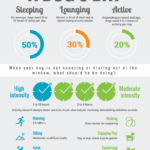Why Does My Dog Breath Smell Like Fish
Have you ever been greeted by the pungent smell of fish when your furry best friend breathes in your face? It’s never a pleasant experience, and it often leads pet owners to wonder why their dog’s breath smells like fish. In this article, we will explore the possible reasons behind this odor, how to prevent it, and how to treat it.
Possible Reasons for Fishy Breath
One of the most common reasons for fishy breath in dogs is their diet. If your dog has recently eaten fish or any other seafood, their breath may have a distinct fishy smell. This smell is usually temporary and should go away once your dog has had time to digest their food properly.
Another reason for fishy breath could be poor dental hygiene. Dogs that don’t receive regular teeth cleanings can develop plaque buildup and gum disease, which can cause an unpleasant odor in their mouth. In some cases, dental problems can even lead to more serious health issues if left untreated.
Dogs with certain medical conditions may also have fishy breath as a symptom. For example, kidney disease can cause a metallic or ammonia-like odor in a dog’s breath. Diabetes can cause a sweet or fruity odor in the mouth due to high levels of glucose in the blood.
Preventing Fishy Breath
The good news is that there are steps you can take to prevent your dog from developing fishy breath. One of the most important things you can do is to establish a regular dental routine for your pet. Brushing your dog’s teeth daily or several times per week can help remove plaque and prevent gum disease from developing.
You should also make sure your dog is eating a healthy diet that contains all the necessary nutrients they need. Avoid giving them too many treats or feeding them table scraps, as these foods can contribute to bad breath and other health problems over time.
Treating Fishy Breath
If your dog already has fishy breath, there are a few things you can do to treat the problem. The first step is to take them to the vet for a checkup. Your vet will be able to determine if there is an underlying medical condition causing the odor and prescribe appropriate treatment.
In cases where poor dental hygiene is the cause of fishy breath, your vet may recommend a professional teeth cleaning. This procedure involves putting your dog under anesthesia and using specialized tools to remove plaque and tartar buildup from their teeth.
Another option for treating fishy breath is to use specialized dental products like water additives or dental chews. These products can help reduce bacteria in your dog’s mouth and freshen their breath over time.
Conclusion
If your dog’s breath smells like fish, it’s important to determine the cause and take steps to prevent it from happening again in the future. By establishing good dental hygiene habits, feeding your pet a healthy diet, and seeking treatment if necessary, you can help keep their breath smelling fresh and clean. Remember, a little bit of bad breath is normal for dogs, but if the odor persists or becomes overwhelming, it’s always best to consult with your veterinarian.



